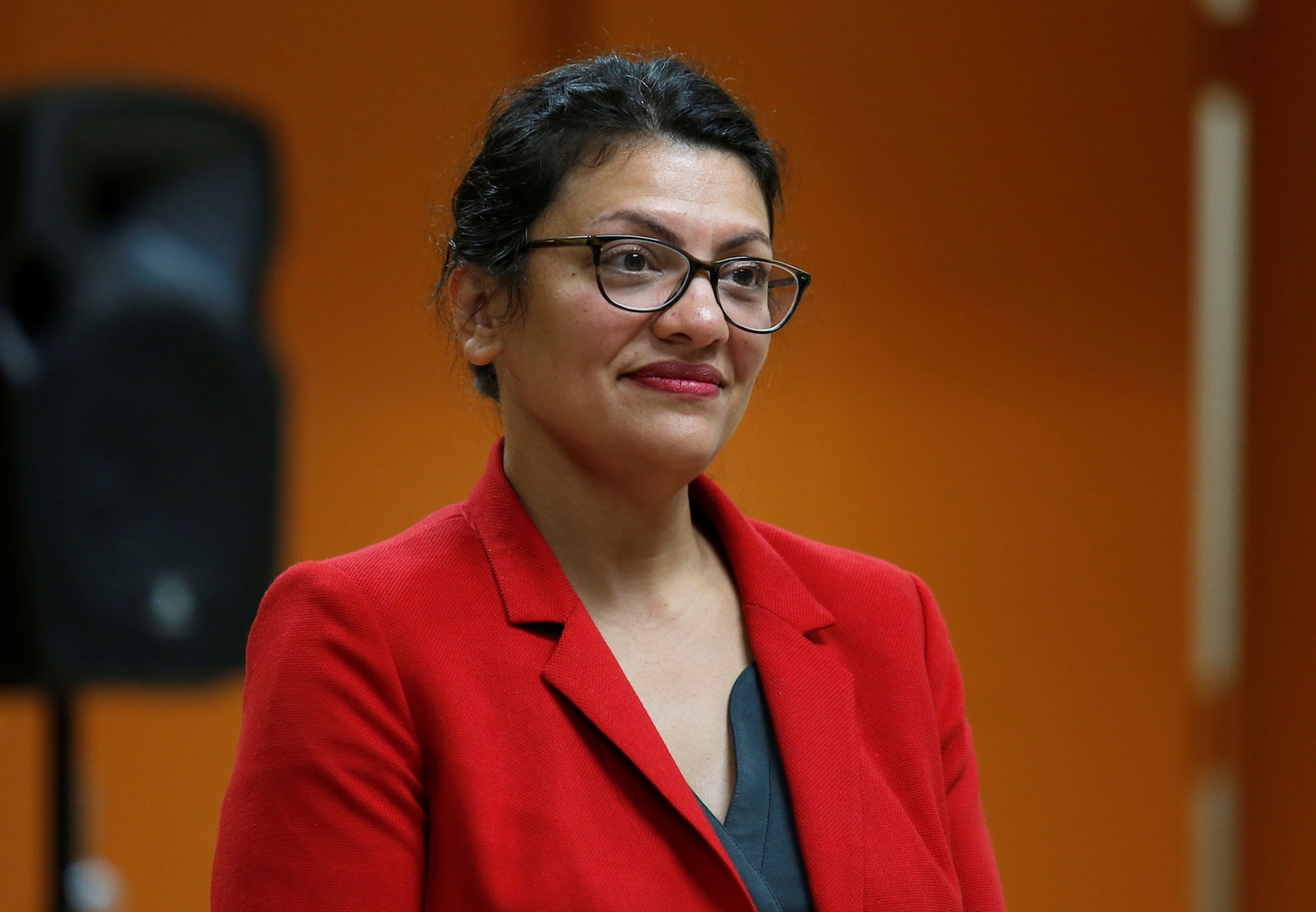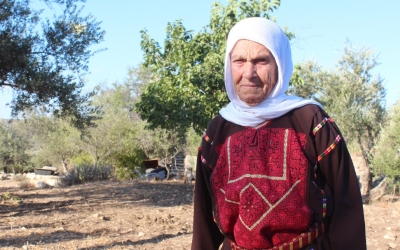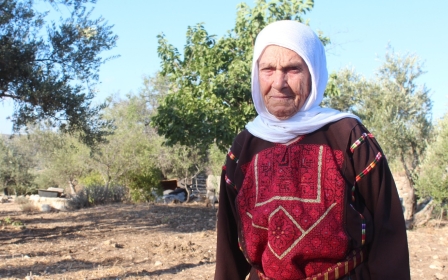Tlaib says she won't visit Palestine under Israel's 'oppressive conditions'

Rashida Tlaib cancelled her trip to Israel and the occupied Palestinian territories after Israel said it would allow her to visit her family on "humanitarian grounds" - a restriction the US congresswoman said was "meant to humiliate" her.
In a statement on Friday, Tlaib accused the Israeli government of using her desire to visit family in the occupied West Bank to silence her.
"The Israeli government used my love and desire to see my grandmother to silence me and made my ability to do so contingent upon my signing a letter," she said, referring to the Israeli demand she enter on humanitarian grounds.
"Visiting my grandmother under these oppressive conditions meant to humiliate me would break my grandmother's heart," Tlaib, who is Palestinian-American, continued.
"Silencing me with treatment to make me feel less - that is not what she wants for me – it would kill a piece of me that always stands up against racism and injustice."
New MEE newsletter: Jerusalem Dispatch
Sign up to get the latest insights and analysis on Israel-Palestine, alongside Turkey Unpacked and other MEE newsletters
On Thursday, Israel announced plans to bar Tlaib and her colleague, Democratic Congresswoman Ilhan Omar, from entering the occupied Palestinian territories.
Amid an international outcry against the decision, Israeli Prime Minister Benjamin Netanyahu said Tlaib could apply to visit her relatives on humanitarian grounds.
Tlaib and Omar had planned to visit the West Bank and East Jerusalem this weekend as part of a delegation.
The Israeli government said it banned the US representatives over their support for the Boycott, Divestment and Sanctions (BDS) movement, which seeks to pressure Israel to end its abuses against Palestinians.
"The itinerary of the two congresswomen reveals that the sole purpose of their visit is to harm Israel and increase incitement against it," Netanyahu said on Thursday.
That was rejected by the congresswomen, as well as by Palestine advocates who denounced the move as part of Israel's attempt to silence dissent and hide its racist policies and treatment of the Palestinians from the world.
'The occupation is real'
Also on Friday, Omar took to Twitter to condemn the decision, listing the places and groups she said the delegation had planned to visit.
"Let's be clear: the goal of our trip was to witness firsthand what is happening on the ground in Palestine and hear from stakeholders - our job as Members of Congress. But since we were unable to fulfill our role as legislators, I am sharing what we would have seen," Omar wrote.
She said the delegation planned to meet with members of the Israeli parliament, the Knesset, as well as Israeli security officials and the US ambassador to Israel. They would have also met with UN representatives and joined a video conference with Palestinian youth from Gaza, Omar said.
The congresswoman said they also planned to take a tour of the West Bank city of Hebron with Israeli rights group B'tselem, and see the Israeli separation wall where it circles Bethlehem.
"Denying visits to duly elected Members of Congress is not consistent with being either an ally or a democracy. We should be leveraging that [US] aid [to Israel] to stop the settlements and ensure full rights for Palestinians," Omar said.
"The occupation is real. Barring members of Congress from seeing it does not make it go away. We must end it - together."
'Racist treatment'
Activists in the US also said the ban reflects Israel's policy of barring Palestinian-Americans and others from visiting their homeland, as the Israeli government controls the crossings into the occupied territories.
On Friday, Israel's interior minister said Tlaib's request to visit on humanitarian grounds, only to later decide to cancel the trip, "was a provocation to embarrass Israel".
"Her hatred for Israel overcomes her love for her grandmother," Aryeh Deri tweeted.
In her statement, Tlaib said she experienced "the same racist treatment that many Palestinian-Americans endure when encountering the Israeli government".
She said hate and racism are thriving in both Israel and the US, and criticised the alliance between US President Donald Trump and Netanyahu - something Tlaib said "must prompt a re-evaluation" of the US's unwavering support for Israel.
'Being silent and not condemning the human rights violations of the Israeli government is a disservice to all who live there, including my incredibly strong and loving grandmother'
- US Congresswoman Rashida Tlaib
The strong ties between Israel and the US have been bolstered under Trump and Netanyahu, with the leaders providing each other with cover against accusations of racism in their respective countries.
Trump has publicly lambasted Tlaib and Omar over the past several months for their support for Palestinian human rights.
On Thursday, the president said the congresswomen "hate Israel & all Jewish people, & there is nothing that can be said or done to change their minds".
He said "it would show great weakness" for Israel to allow them into the country.
Both Tlaib and Omar have repeatedly denounced antisemitism, among other forms of racism.
"The Israeli and Palestinian people need us to be more courageous and to be honest brokers of peace. Being silent and not condemning the human rights violations of the Israeli government is a disservice to all who live there, including my incredibly strong and loving grandmother," Tlaib said in her statement.
"This type of oppression is painful for all humanity, but it is especially painful for me personally every time I hear my loving family members cry out for the freedom to live and the right to feel human."
Middle East Eye delivers independent and unrivalled coverage and analysis of the Middle East, North Africa and beyond. To learn more about republishing this content and the associated fees, please fill out this form. More about MEE can be found here.





